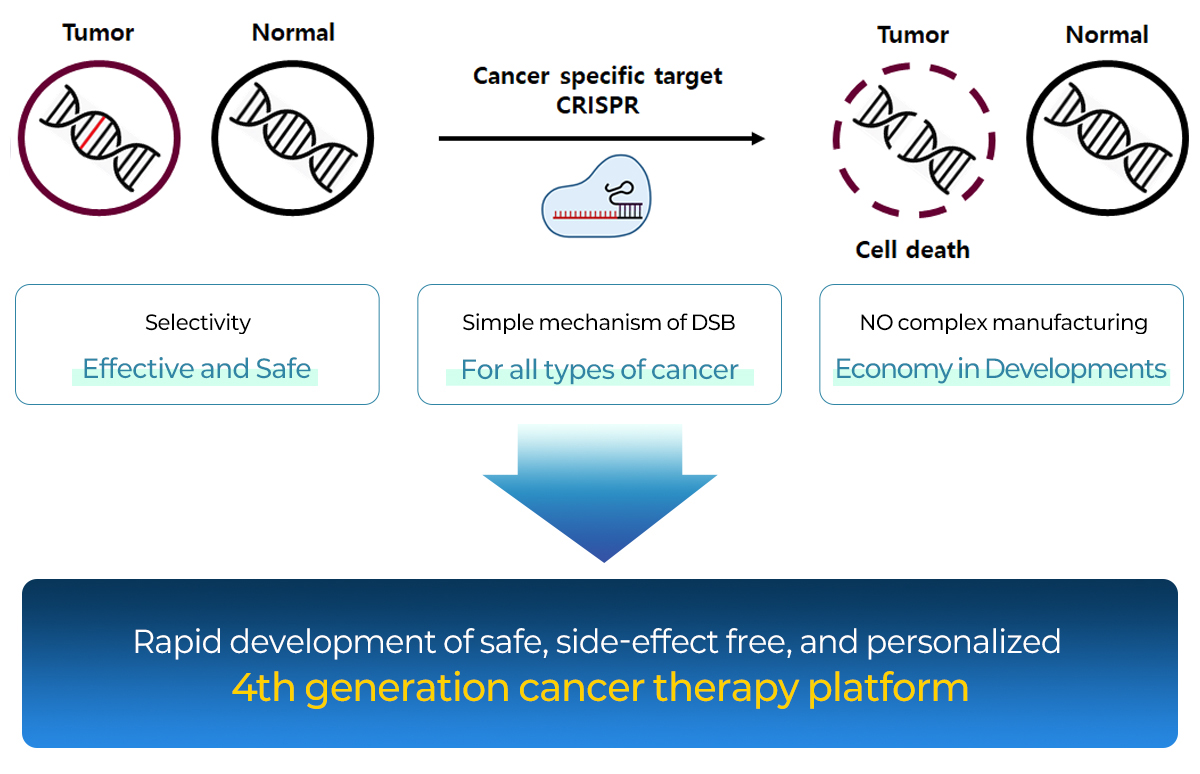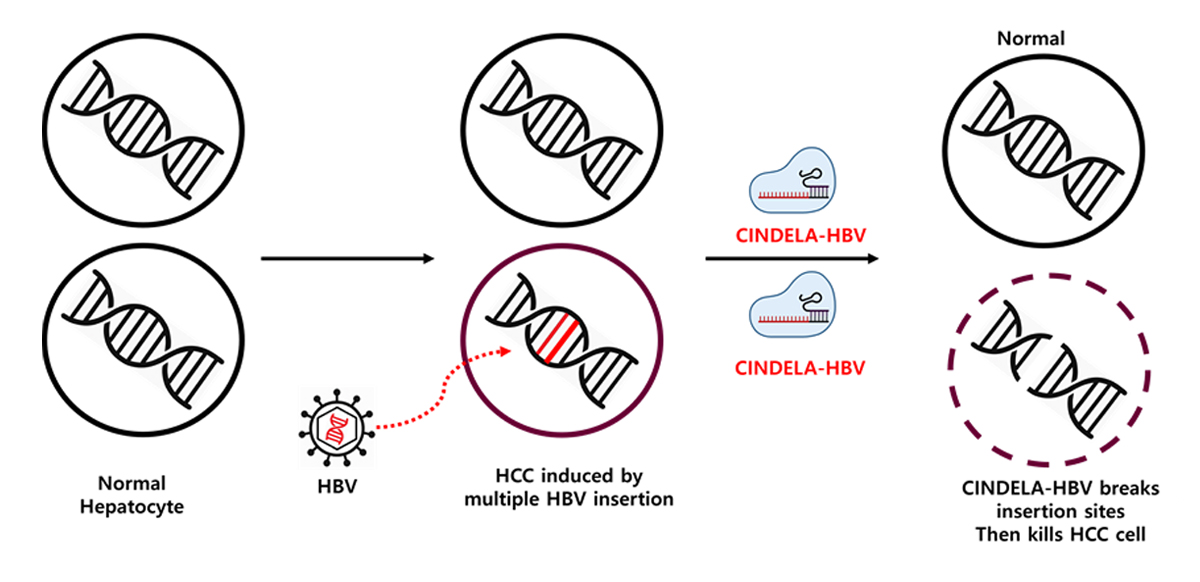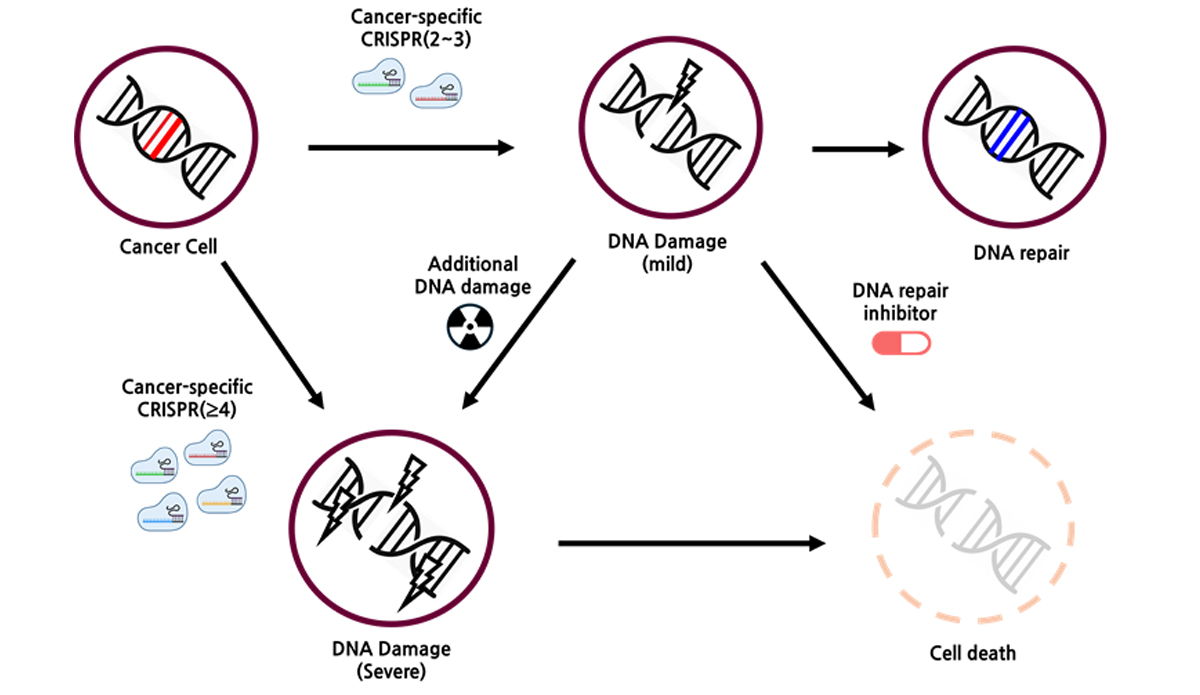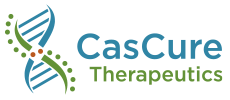Core Technology
Cascure Therapeutics: building a new future for cancer treatment technology.
What is CRISPR?
CRISPR is a DNA “cut-and-paste” tool that lets scientists precisely edit specific parts of a gene. Nicknamed “gene scissors,” it can also insert new genetic information where needed. Cascure uses this technology to develop a next-generation cancer therapy that destroys tumor cells while leaving healthy cells unharmed. Because it targets DNA mutations found only in cancer cells, the treatment attacks cancer at the genetic level and aims to overcome the side-effect limits of current therapies.
In/Del Mutation
Insertion or deletion mutations can occur at specific sites due to errors during DNA replication or repair.
When they appear within genes, these mutations trigger abnormal cell growth, survival, and metastasis.
Our strategy: Precise DNA Cutting through In/Del Targeting
Our company is developing a CRISPR-based therapy that accurately recognizes and cuts the In/Del mutation sites found only in cancer cells, thereby selectively destroying cancer cells.
Cancer-specific InDel Attacker Platform
Cascure chooses its targets with AI algorithms trained on data from large-scale CRISPR screens.
Among the tumor-specific In/Del mutations in a patient’s cancer cells, we pick the ones that trigger the strongest DNA-damage response and design a custom CINDELA therapy. By basing every step on the patient’s own genome, we aim to deliver a truly personalized anticancer treatment.

CINDELA‑HBV : a targeted therapy for HBV‑driven hepatocellular carcinoma
We are also building off-the-shelf CINDELA therapies that strike mutations found in many tumor types. We began with liver cancer and are now expanding our UNIVERSAL CINDELA program to cervical and head-and-neck cancers. Because the targets are preset, these drugs are simpler to manufacture and move through regulatory approval.

CINDELA-Plus: Combination with DNA repair inhibitor
CINDELA triggers cancer-cell death by activating the DNA-damage response.
Administering it together with DNA repair inhibitors boosts its potency while reducing side effects. We have observed strong synergy when CINDELA is paired with various DNA repair inhibitors and with radiation therapy. Through our CINDELA PLUS program, we aim to deliver higher anticancer activity with fewer side effects.

